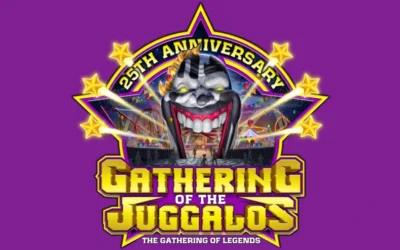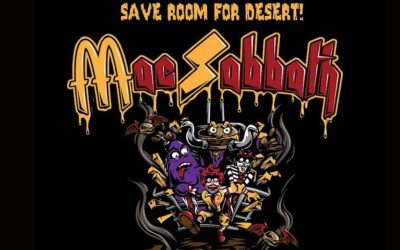The two biggest companies in the ticketing and live entertainment industries faced skeptical members of the Senate Subcommittee on Antitrust, Competition Policy and Consumer Rights in Washington, DC today and seemingly did little to convince them that the merger the two propose would benefit fans, promoters, venues, artists or ticket companies.
Ticketmaster Entertainment and Live Nation took great pains during the 90-minute hearing to try to explain how the music industry has been irrevocably changed by darkening market forces, stressing that their survival partially hinged on the deal being allowed to go through.
“We’ve grown the right way, but the current economic environment has still taken its toll,” Michael Rapino, President and CEO of Live Nation, told the Senators. “Our stock has declined by nearly two-thirds. Our real estate holdings have been gutted. Our hard work is not producing the rewards it should. We face the very real possibility that if we don’t find a solution, we could ultimately be bought by a foreign-owned entertainment conglomerate like the majority of record labels.
“I have two choices – I can hope the economy gets better, or I can seek a more proactive approach to protect our employees, reward our shareholders and grow our company. That is the motivation behind this merger,” he said.
Earlier this month, the company filed an 8-K document with the Securities and Exchange Commission claiming that it’s fiscal fourth quarter ended December 31, 2008, was strong and that 2009 looks equally as good. “Despite the recession, the Company’s outlook for the remainder of 2009 is optimistic as business remains strong and millions of fans continue to attend concerts,” the report stated.
Rapino’s counterpart at Ticketmaster, CEO Irving Azoff, reiterated his sentiments. “In the broader picture, we are focused on structural changes that will help us better serve artists, fans, teams, museums and all of our other clients. This merger will let us fully integrate our complementary strengths and eliminate about $40 million in inefficiencies — money that could be invested in more innovation. It is designed to address the obvious inefficiencies in the entertainment supply chain — the large volume of unsold tickets to events, higher costs, surcharges and the explosion of the resale market,” he said.
“It will give us greater flexibility in how we promote, market and sell tickets to events. It will give us a pathway to alternative pricing and fee structures. And we will be better able to develop new and innovative products and services that enhance the fan experience and make all forms of entertainment more accessible to everyone,” Azoff added.
The three other speakers called before the subcommittee were not buying it, however.
Concert promoter Jerry Mickelson, Chairman and Executive Vice President of Chicago-based JAM Productions, said the deal would have an incredible adverse effect on the marketplace.
“If this merger is allowed to proceed the combined entity will have the ability to suppress or eliminate competition in many segments of the music industry including rival concert promoters; primary and secondary ticketing companies; artist management firms; talent agencies who route performers’ tours; venue management companies; record companies; artist merchandise, music apparel and licensing companies; and sponsorship companies,” Mickelson said. “It is my belief this merger is vertical integration on steroids.”
Mickelson and fellow concert promoter Seth Hurwitz, co-owner of
I.M.P. Productions and the 9:30 Club in Washington, DC, both spoke about how they believed that a combined Ticketmaster and Live Nation could force artists to avoid doing business with certain promoters or venues, and the two companies would be able to access their competition’s confidential business data because the two also represent so many acts.
“If this merger is allowed to happen, my biggest competitor will have access to all of my sales records, customer information, on sale dates for tentative shows, my ticket counts, they can control which shows are promoted and much more,” Hurwitz said. “This will put all independent promoters at an irreparable competitive disadvantage. This would be like Pepsi forcing Coke to use its services as its distributor, and pretend that the intelligence Pepsi gathers won’t harm Coke. It just can’t happen and maintain a fair and level playing field.”
He added, “As far as using another ticketing service, there are simply situations where it will not be possible to bring in a new ticketing system without a very steep, painful, expensive learning curve that no major act will be willing to endure. Live Nation themselves have admitted this, now ready to abandon their own fledgling system after only one month.”
The Senators on the subcommittee—Chairman Herb Kohl (D-WI), Ranking Member Orrin Hatch (R-UT), Charles Schumer (D-NY), Amy Klobuchar (D-MN) and Russell Feingold (D-WI)—remained concerned, and appeared unconvinced, by the Rapino’s and Azoff’s presentations, prompting Kohl at one point to say he was “disturbed” by the pair’s “unwillingness” to get to the heart of what the proposed merger was about, namely to make the two “bigger, better and more profitable.”
The subcommittee, however, has no authority to block the proposed merger, but could make a recommendation to the U.S. Justice Department they it disapproves of the deal. The Justice Department is currently in the midst of reviewing the proposal.
Schumer, who has come out against the merger, went even further during the hearing by trying to pin down Azoff that it was a “mistake” for Ticketmaster to have bought secondary ticket company TicketsNow last year. The two companies have been criticized for the way they handled the recent sale of Bruce Springsteen tickets, and have been sued in Canada for alleged similar practices.
David Balto, Senior Fellow for Center for American Progress, made a similar claim, stressing that the subcommittee should go back and re-examine Ticketmaster’s acquisition of TicketsNow.
“Before its acquisition of TicketsNow, Ticketmaster lacked the incentive or ability to artificially inflate ticket prices by diverting tickets to the resale market. If it acquires Live Nation it will have an even greater ability to manipulate the market in this fashion and harm both resellers and consumers. If this merger is permitted, the ‘Springsteen scheme’ may become a regular part of Ticketmaster’s anticompetitive playbook,” Balto said in his testimony.
For his part, Azoff made it clear that if he were with Ticketmaster at the time it purchased TicketsNow, he would have opposed it, and he went further to say that he doesn’t believe the secondary ticket market should exist at all.
“The secondary market is a mess,” Azoff said.




